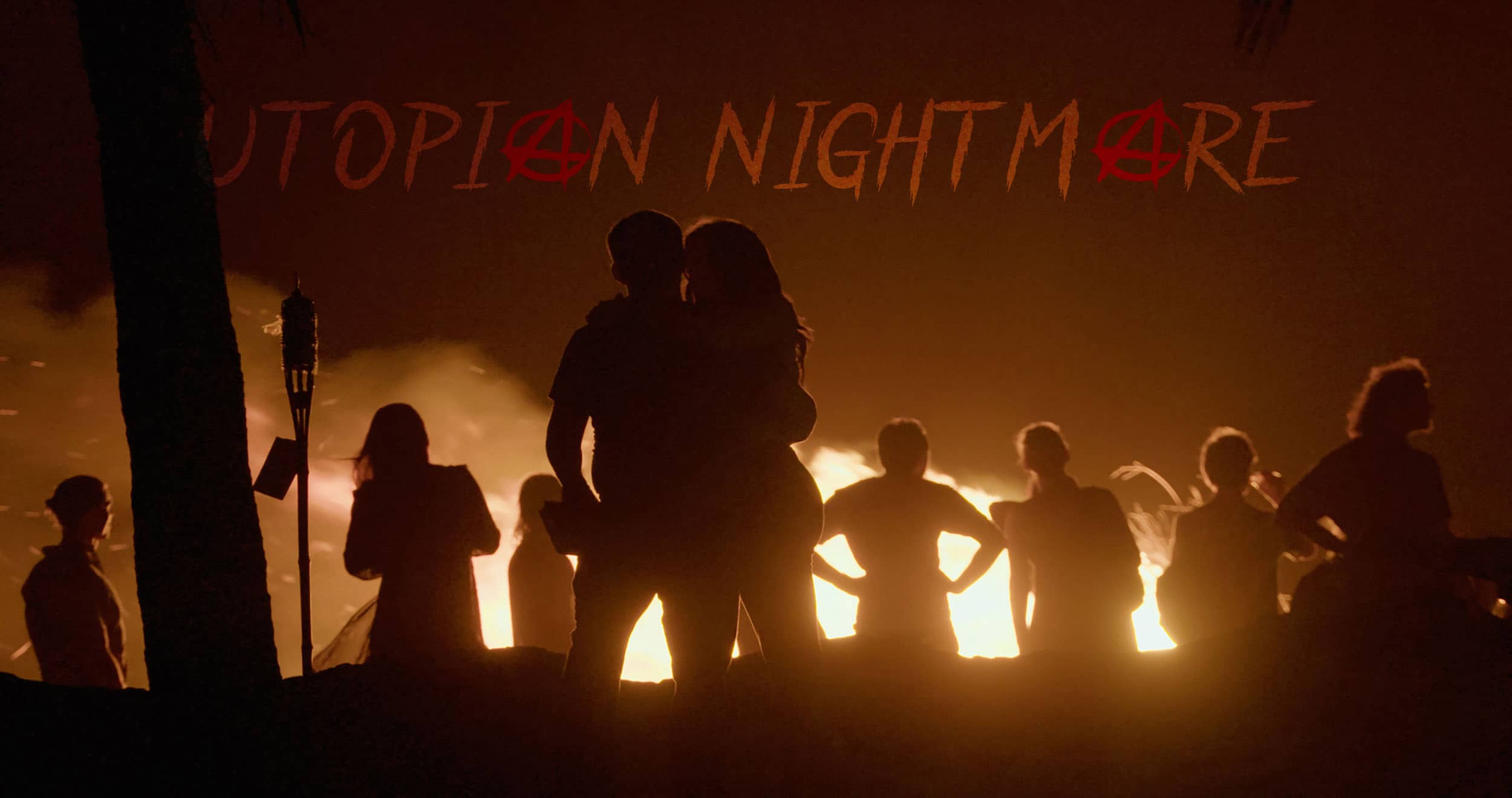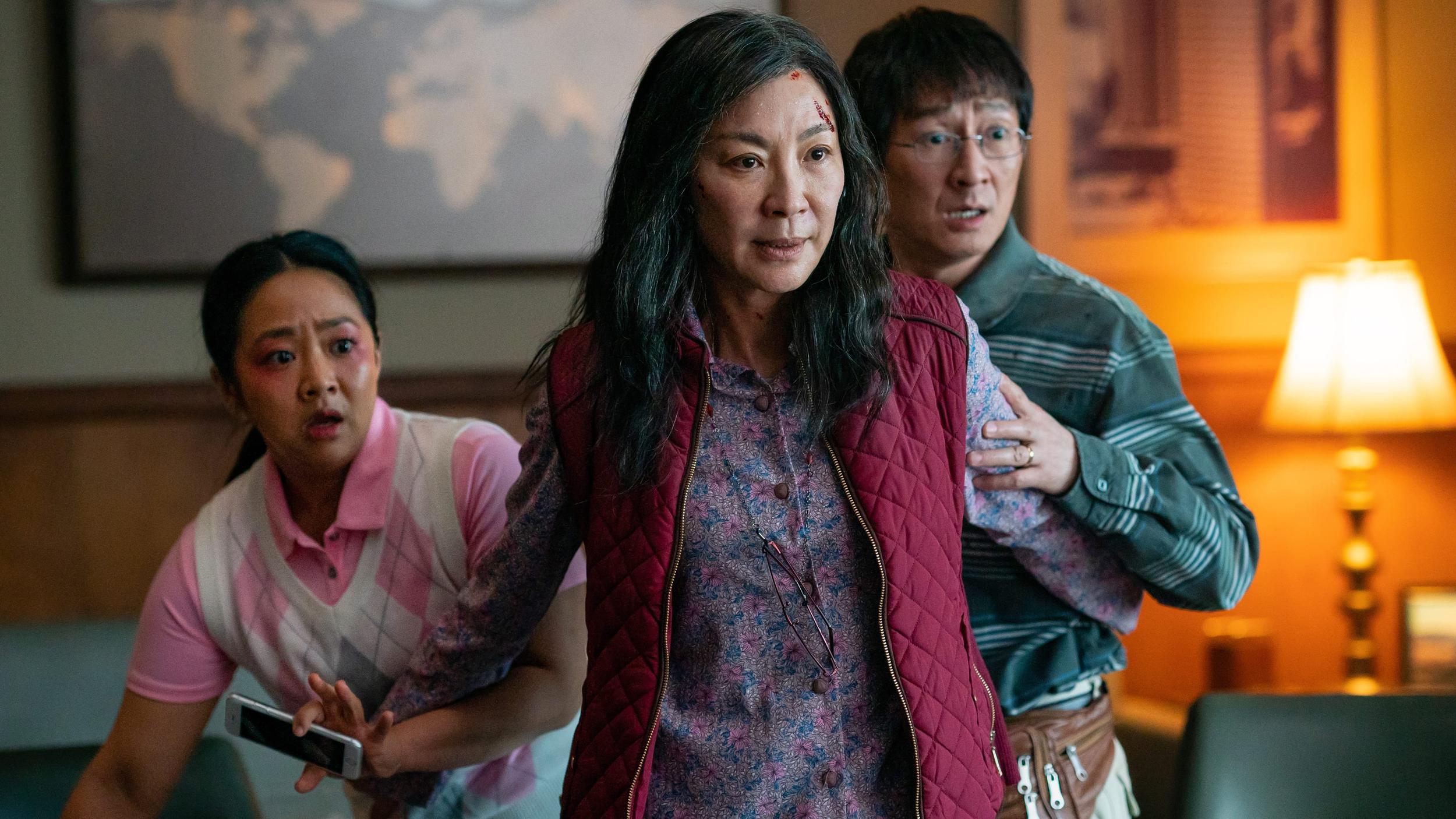What is community if you can’t rally around someone when they are down, then what’s the fricking point?
Erika Harris
The fourth episode, Living Without the Law, begins with the murder of John Galton. It is a sad and depressing episode. Just weeks before Anarchapulco 2019 is about to kick off, Lily, John, and their friend Jason Hanza had just finished eating and they noticed that some kids were throwing rocks at their house. When John and Jason walked out to confront them, they were shot. John died right there on the driveway but Jason survived and managed to get back to the house. Lily got Jason to the hospital but there they were afraid to take him, fearing it was a cartel hit. After Jason offered them some money they decided to take him in and treat his wounds. Pretty soon the entire hospital was surrounded by cops, thinking it could be a cartel hit and that the cartel might come back and finish the job, so to speak. Lily went into hiding, fearing both that she might be a target, and that she could get deported. This has a huge impact on the Anarchapulco community, and there are different theories about who was behind the shooting being expressed in the episode.
In this episode, we also get to see a reality of Acapulco that pretty much has been ignored or completely denied by the anarcho-capitalists there. But then again, it must be hard to see it from the ivory tower. The city has so many murders that the morgues do not have enough room in their cold chambers, so many of the bodies are left to decompose in unrefrigerated rooms. The bubble has burst and reality has come crashing in. People are canceling their trips to the conference and some of the sponsors are backing out. The ethics behind the ideology is starting to show its face.
The ethics of anarcho-capitalism is entirely based on the individual. This type of ethical doctrine is called ethical egoism, or as Ayn Rand called it, objectivism. It states that each individual ought to exclusively pursue his or her self-interest. The ethical obligation a person has is only to oneself, and no one else. This doctrine has more holes in it than Swiss cheese and there is no way I can write about them all here so I will focus on one of the most obvious that becomes apparent in the episode.
After the murder of John Galton, Lily and Jason has nowhere to go, they don’t have any money and they cannot return to their house. No one in the community seems willing to offer them any kind of help except for one woman, Erika Harris, who invites them to come to her home in Belize. People in the community warn Harris not to; don’t stick your neck out you might get cut. Of course, all of the people who turn their backs on Lily and Jason and refuse to help are being completely ethical, in accordance with the doctrine of ethical egoism. But something does seem kind of off about it. Sometimes we all need help. We might get sick, we might be attacked, and all sorts of shit can happen to us that was not caused by our own volition but because of circumstances beyond our control. And most of the time it would not be in a person’s self-interest to help another, it would be better to let him perish and take all his stuff, as long as the person pursues his self-interest in every action. But can this really be called ethics? Isn’t the main point of ethics how we ought to treat others? Also, let us assume it was a cartel hit, then it is hard to criticize them on the grounds of ethical egoism because the cartel was just doing what’s in their best interest, securing the drug trade. Now, you could argue that the reason for the drug wars is a direct effect of the State’s prohibition against narcotics, and I think you are right about that. But the answer is not to abolish the government or the State. Even Ayn Rand recognized that the State is needed to ensure the safety and freedom of the individual, but in anarcho-capital-dreamland, you have none of that. Instead, you would have privatized forces that protect the interest of whoever pays more, and how is that different from cartels? But you’re not allowed to hurt or kill people, the anarcho-capitalist might cry. Well, first of all, tell the cartel that. Second, who is going to enforce that?
I must admit I have been making a straw man out of the theoretical “underpinnings” of anarcho-capitalist ethics, but it is kind of hard not to. When you try to make sense of the ideas behind it just becomes a theoretical and practical mess with such obvious problems at every turn. Just pick a card, any card, and the whole thing collapses in a heap of shit.



